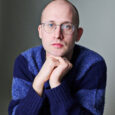British composer Laurence Osborn has curated a series of concerts at Wigmore Hall taking place this Saturday 25th November. The concerts feature two world premieres:
‘Lakes, Mists, Bats, Daggers and Fountains’ (commissioned by Wigmore Hall)
In recent pieces, I have been reaching for a kind of clarity and emotional directness that I hear in the music of certain artists I love, but find impossible to describe using words. It is a quality that only exists temporarily in the act of listening; it cannot be sustained for an entire piece. Maybe I could describe it as a kind of closeness, or rawness, or hotness, or the sensation of being touched through the musical fabric. It emerges in the music of C. P. E. Bach, Schubert, Berlioz, Janácek, and Tippe". I hear it also in Nina Simone’s voice, in Bill Evans’s piano, in J Dilla’s sampling.
Lakes, Mists, Bats, Daggers, and Fountains. This gorgeous parade of images comes from a disparaging definition of Romanticism in the nineteenth-century Parisian newspaper, Le Corsaire, as quoted in David Cairns’s biography of Berlioz. Romanticism is defined as ‘greasy hair growing over the coatcollar’, sighing at least three times a minute’, and ‘dreaming of lakes, mists, bats, daggers, and fountains’. When I read the quotation, that final parade of images reached out and poked me. The images had conspired to rebel against their own glibness and communicate something vivid and fantastical in spite of the intentions of their author.
None of the four movements of Lakes, Mists, Bats, Daggers, and Fountains have anything to do with lakes, mists, bats, daggers, or fountains.
'Spare Parts' (commissioned by The Marian Consort)
Spare Parts is a collaboration between myself and the poet Joseph Minden. It is about the passing of time, ruin, and preservation. Each movement in the collection is held together by a little bolt or screw borrowed from another piece of choral music.
The first movement, ‘(i) loop (after Weelkes)’, is a kind of burial rite. A single line from Thomas Weelkes’s eulogy ‘Death Hath Deprived Me’ is set to repeat in a continuous loop. On each repetition, elements are removed from text, allowing new meanings to be exposed. The bones of Weelkes’s music are preserved, decorated in my harmonic colours and vocal textures.
The second movement, ‘(ii) crook (after Machaut)’ is a bit like a late-medieval motet. Late medieval motets are chimeras. Ours is part-human, part-goat, part-bell. The text relates to the experience Joe and I have had — on entirely unrelated and separate occasions — of stumbling across large flocks of belled-up goats in the Cevennes mountains. Here, we commemorate their bleats and clangs.
The final movement, ‘(iii) spring (after Dowland)’ contains a line from Dowland’s ‘His Golden Locks’. In Joe’s poem, each word from the line ’O time too swift! O swiftness never ceasing!’ appears embedded in a line cut from a different text. My music behaves as if on a spring, boinging back and forth between Dowland’s harmony and my own as the words from his song emerge and recede. Time, too, is audibly elastic in this movement.
Timings for the day:
11.30: Solem String Quartet / ‘Lakes, Mists, Bats, Daggers and Fountains’ (World premiere)
15.00: Marian Consort / 'Spare Parts' for 6 Voices (World premiere) & 'Juvenilia' for Mixed voices
19.30: Britten Sinfonia / ‘Automaton’ for Harpsichord and 6 Players, ‘Coin Op Automata’ for Harpsichord and String Quartet (London première) & ‘Rendering Error’ for Solo Violin
You can read more about the day on the Wigmore Hall website here.

